Home > Your Guide to Malta Visas: Everything You Need to Know
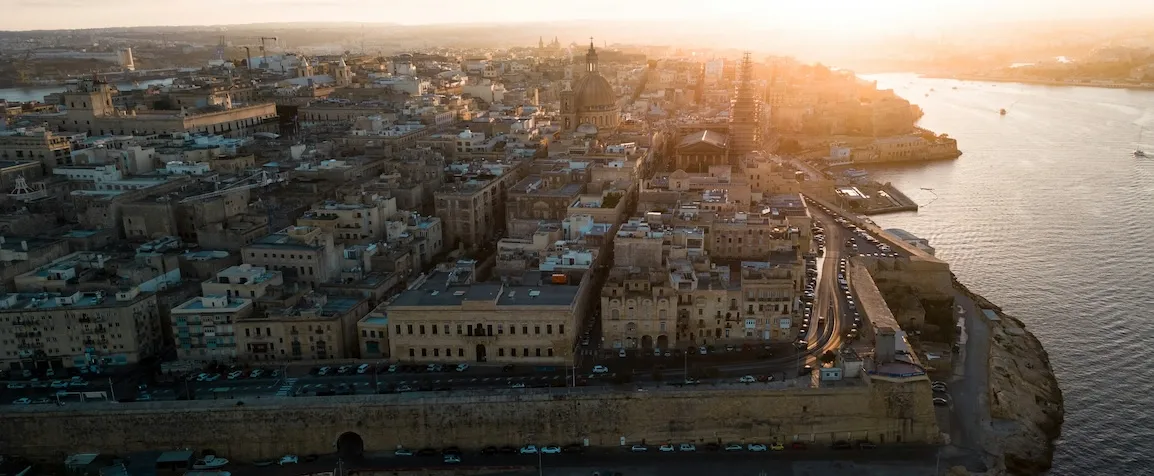
Your Guide to Malta Visas: Everything You Need to Know
Malta, a beautiful Mediterranean island, is a popular travel destination for everyone from tourists ready to sightsee to international professionals with business-related interests. It’s no wonder it sees millions of travelers each and every year!
If you’re planning to visit Malta or even considering a long-term stay, understanding which visa requirements apply to you is essential.
This article will give you information about:
- Who needs a visa for Malta
- How to apply for your visa
- Which documents you’ll be required to provide
- How to go about your visa appointment
- Whether or not you need ETIAS for Malta
- And everything else you need to know to ensure a smooth and stress-free jaunt abroad!
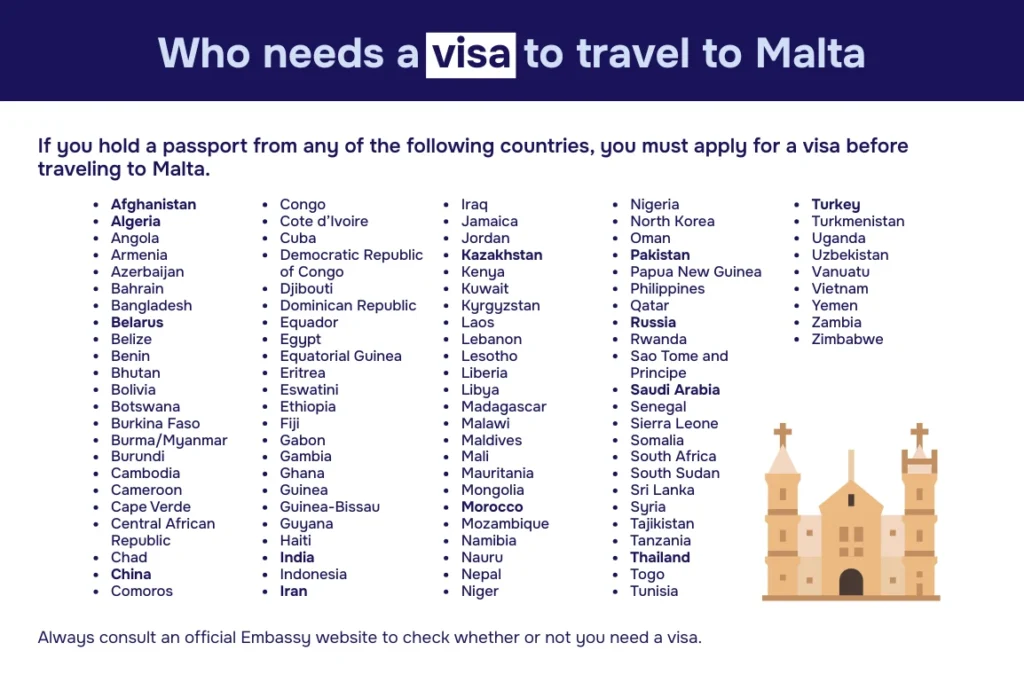
Do I need a visa to go to Malta?
It depends. Whether or not you need a visa depends on a few things: your nationality, the purpose of your visit, and how long you intend to stay.
If you’re from a visa-exempt country, such as the US, UK, or Canada, you do not need a visa, as long as your stay is under 90 days in length and for tourism or business. If you’re staying for over 90 days, or to work or study, you will need to apply for a visa.
If you’re not from a visa-exempt country, like China, Russia, India, and others, you will need a visa to visit Malta, regardless of the purpose of your trip or the duration.
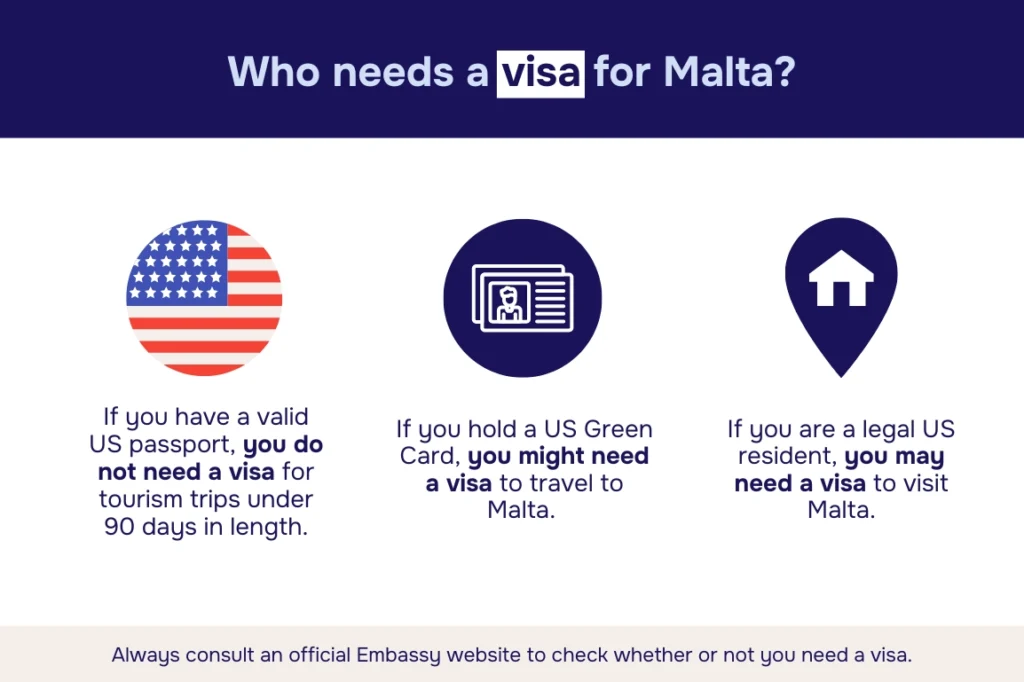
Do US citizens need a visa for Malta?
US citizens do not need a visa for short stays in Malta – up to 90 days within a 180-day period. If you're planning to visit for tourism, business, or to see family and friends, you can enter visa-free.
However, if you want to stay longer or work in Malta, you'll need to apply for a visa.
How long can you stay in Malta without a visa?
Travelers who are visa-exempt (such as US or UK citizens) can stay in Malta for up to 90 days without a visa. For longer stays, a visa is mandatory.
Keep in mind that the 90 day rule applies to any given 180-day period.
Traveling to sunny Malta?
Get insured and focus on the memories.
How do I apply for a Malta visa?
Applying for a Malta visa is a fairly straightforward process, but it does require preparation. You'll need to gather all the necessary documents, complete the visa application form, and schedule an appointment at a Maltese consulate or visa center in your country of residence. The steps are as follows:
- Decide which Malta visa you need.
- Prepare all of the required documentation.
- Book an appointment at a Maltese consulate or visa center in your country of residence.
- Attend your visa appointment & submit your application and biometrics.
- Receive an answer from the Maltese Embassy.
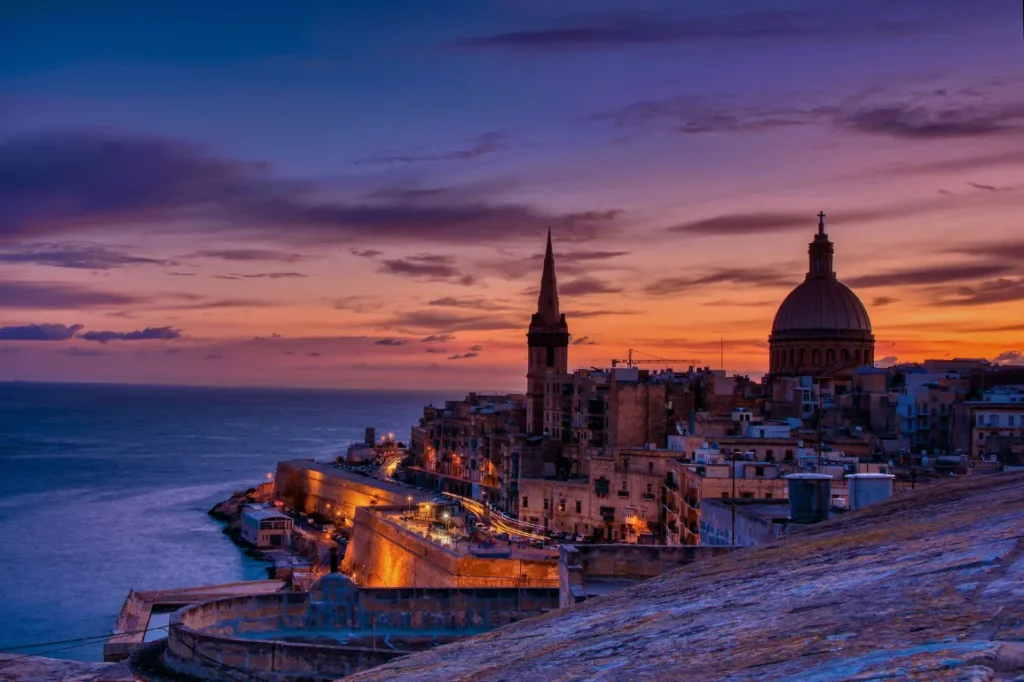
Can I apply for a Malta visa online?
No. While you can complete some of the preliminary paperwork online, you will need to submit your application in person at a consulate, embassy, or visa center – by appointment.
With that being said, there will be an online platform for Malta visa applications ready in the coming years. While it’s currently being built, a portal called EU VAP is in the works and is expected to be fully operational by 2030.
Is a Maltese visa difficult to get?
Generally, the application process is straightforward. When it comes to whether or not your Malta visa application will be approved is entirely up to the Maltese Embassy.
What is the rejection rate for Malta visas?
In 2024, 38.5% of Malta visa applications were denied globally. Rejection rates vary depending on a list of factors, such as your country of nationality, the time of year, visa type, and more. Additionally, rejection rates are fluid and can change at any time.
What is the processing time for a Malta visa?
The processing time for Malta visa applications is typically around 15 working days for short stays, but long-stay visas may take several weeks.
Additionally, visa appointments (which are mandatory) can be booked for weeks or months at a time, so it’s best to start the process well ahead of your travels.
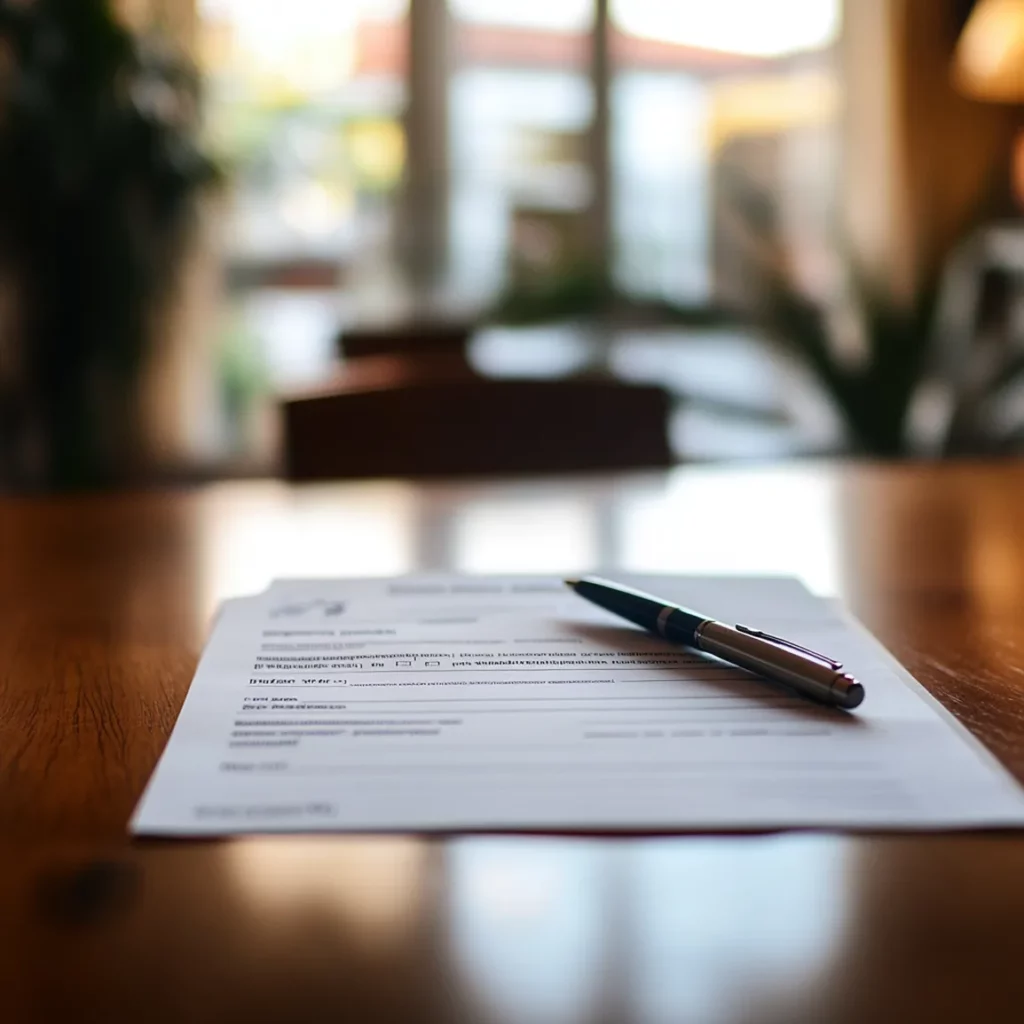
Malta visa application requirements
So, what are the requirements for applying for a visa for Malta? It depends on the type of visa you are applying for, but there are standard documents that you’ll need to supply regardless of the type of visa you’re applying for.
These can be considered as standard documents. Then, on top of these records, there may be supplementary requirements as well.
Which documents are required when applying for a Malta visa?
Standard, essential documents include:
- A completed visa application form (this can be found online).
- A valid passport.
- Passport-sized photos that are Schengen compliant (See tips here).
- Proof of accommodation in Malta (this can be an invitation from a friend, a hotel, or vacation rental booking).
- Schengen travel insurance that meets minimum requirements (learn more).
- Proof of financial means to cover your stay.
- Travel itinerary (flight reservations to and from the Schengen zone).
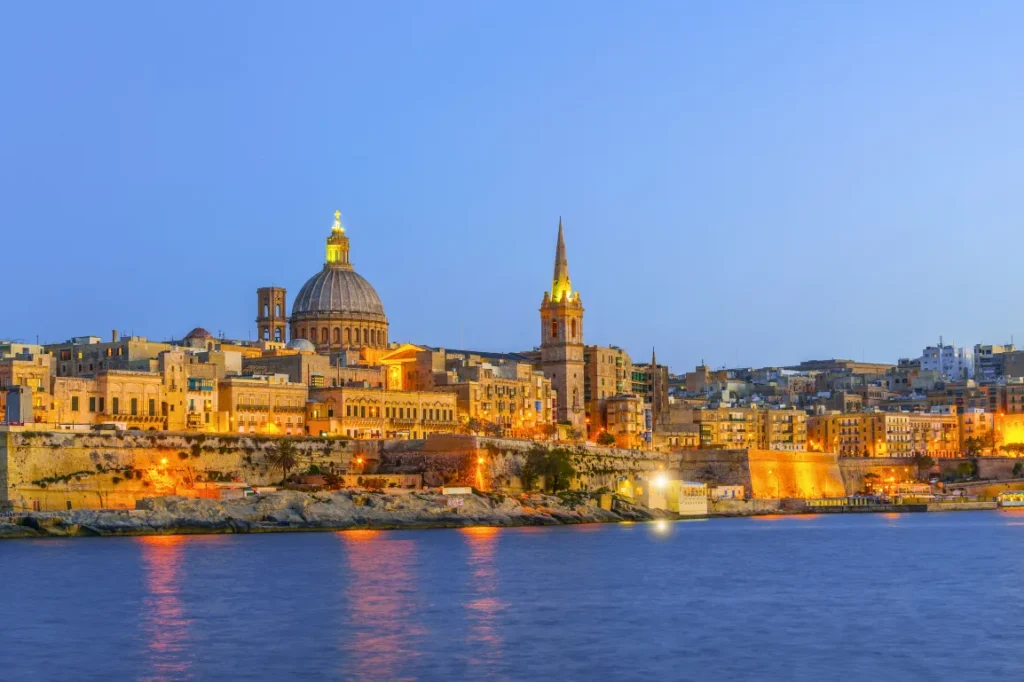
Is there an interview when applying for a Malta visa?
An in-person appointment is required when applying for a Malta visa. During this appointment, a visa officer will check to make sure you have all of the necessary documents and that your biometrics (fingerprints) get taken and submitted.
You may be asked questions about your documents/application and travel plans.
Do I need to apply for ETIAS if I have a Malta visa?
No, if you have a valid Malta visa, you do not need to apply for ETIAS. Additionally, if you hold a passport for a Schengen country, you also do not need ETIAS to visit Malta.
Who needs ETIAS to visit Malta?
Travelers from visa-exempt countries who are planning to visit Malta for short stays (less than 90 days) will need to apply for ETIAS once it has been launched. This includes US, UK, Canadian, Australian citizens, as well as others.
ETIAS is expected to launch at the end of 2026.
Learn more about Malta and ETIAS in our Malta ETIAS Guide.

FAQs about Malta Schengen visas
Similar visa guides
Heading to France? Getting a visa for France
Germany on the horizon? You may need a German visa
Off to the Netherlands? Learn about Dutch visas
Ready to explore Spain? Do I need a visa to go to Spain
Planning a trip to Czechia? Read about Czech visas here
Are you going to Luxembourg? Read about Luxembourg visas
Planning a trip to Portugal? Read the Portugal visa guide
Planning a trip to Switzerland? Read about Swiss visas
Off to Iceland? Check out the Iceland visa guide
Going to Hungary? Read about Hungarian visas
Greece on the horizon? Check if you need a Greek visa
Trip to Austria coming up? Read our Austria visa guide
Traveling to Italy? Learn about Italian visas
Are you going to Norway? Read the Norway visa guide
Trip to Poland? Learn all about Polish visas
Planning a trip to Croatia? Learn about Croatia visa requirements
Going to Denmark? Read our Denmark visa guide
Going to Bulgaria? You might need a Bulgarian visa
Traveling to Liechtenstein? See Liechtenstein visa information
Are you traveling to Sweden? Learn about Swedish visas
Heading to Estonia? Learn about Estonian visas
Heading to Romania? Getting a visa for Romania
Trip to Finland on the horizon? You may need a Finnish visa
Planning a trip to Slovakia? You may need a Slovakian visa
Trip to Latvia? You may need a Latvian visa
Going to Lithuania? Learn about Lithuanian visas
